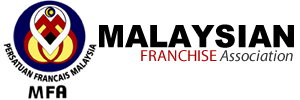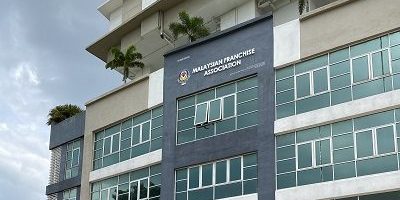NEW FRANCHISE REGULATIONS IN INDONESIA: A FINE LINE BETWEEN STIMULATING THE LOCAL MARKET AND PROTECTIONISM
Graeme Payne and Gordon Drakes, Field Fisher Waterhouse LLP, London
Indonesia’s recent economic growth and the increasing wealth and size of the local market has seen a growing demand for foreign brands and a corresponding increase in international businesses entering the market through franchising. Franchising in Indonesia has been regulated since 1997. In recent years, foreign and domestic franchise systems have spread across a number of sectors, including retail, F&B, healthcare and the services sector. All foreign and domestic franchisors are required to register with the authorities for a franchising licence prior to appointing a local franchisee. However, recent changes to the franchise regulations contain some controversial and prima facie protectionist rules which may have an adverse impact on foreign brands wishing to do business in this important market.
What is the current process for registration?
The current process for registration and pre- contractual disclosure can be summarised as follows:
(a) A franchisor must register with the Indonesian Ministry of Trade (“MOT”) before it enters into a franchise agreement with a franchisee. As part of the registration process, the franchisor must submit to the MOT an application form, together with a disclosure document containing certain information on its business and the proposed franchise agreement (the “Application”);
(b) Assuming that the MOT approves the form and content of the Application, the MOT will issue a franchise registration certificate to the franchisor which is valid for five (5) years. Although the parties can discuss and agree the terms of the franchise agreement before receiving the certificate, a franchisor must be in receipt of the registration certificate before it signs the franchise agreement with the franchisee. In addition, a franchisor must issue to the franchisee both the registered disclosure document and the final version of the franchise agreement at least two (2) weeks before the parties sign and complete the franchise agreement;
“There is a desire from the Indonesian Government to see less importation and more local manufacturing and supply of goods and services in the franchise sector.”
(c) Finally, the franchisee must apply for a franchise operating licence by registering the franchise agreement and the registered disclosure document with the Directorate General of Domestic Trade of MOT, following signature of the franchise agreement.
What is new in the franchise regulations?
The Indonesian Government has recently issued Regulation of the Minister of Trade No. 53/M- DAG/PER/8/2012 regarding The Implementation of Franchising (“Regulation 53”). Regulation 53 came into force at the end of August 2012 and its main purpose is to increase the participation of local SMEs in franchise supply chains. There is a desire from the Indonesian Government to see less importation and more local manufacturing and supply of goods and services in the franchise sector.
There are six key changes arising from Regulation
- 53. Of these six, the “domestic product” requirement is the main cause of concern for international franchisors, particularly those with a product driven franchise system which relies on the ability to import products into Indonesia.
Regulation 53 imposes a requirement on franchisors and franchisees to use “local components for at least eighty per cent of the raw materials, business equipment and merchandise used in the franchise”, (the “80% Rule”). Regulation 53 also envisages the creation of an “Assessment Team”, which will be tasked with ensuring compliance with Regulation
- 53. A similar requirement existed in the old regulations but crucially no percentage was specified and an assessment team did not exist.
In certain circumstances, the Assessment Team may recommend that the MOT grants an exemption to a franchisor from the applicability of the 80% Rule. However, there are no clear guidelines at present regarding the grounds for requesting an exemption, although this should be clarified in the forthcoming implementing legislation. A list of local and foreign products to be used and suppliers to be engaged may be sufficient to satisfy the 80% Rule. At this stage, it seems unlikely that the employment of Indonesian nationals in the franchise business will count towards the 80% threshold.
The other key changes include:
− Presentation to the assessment team – a franchisor may be required to give a presentation on the franchise business to the Assessment Team as part of the registration process.
− Clean break – in the event that a franchise agreement is unilaterally terminated by a franchisor prior to the expiry date of the
franchise agreement, the franchisor will be prevented from appointing a new franchisee in the territory unless the franchisor and franchisee have an agreed settlement (clean break) or if the franchisor has a final and binding court ruling.
− Employees – a franchisor must provide a list to the MOT explaining the composition of the employees to be employed by the franchisee/ franchise business.
Clearly, Regulation 53 and the proposed creation of the Assessment Team signals, on paper, a more proactive and watchful approach from the MOT towards franchising. The 80% Rule could be particularly awkward for foreign brands whose commercial models require the importation of products and equipment. Nevertheless, the MOT is in the process of consulting with various stakeholders and there is, as yet, no implementing legislation to support the creation of the Assessment Team. It could potentially take years before foreign franchisors know exactly where they stand on this issue.
“… franchisors which are either looking to enter the Indonesian market or are due to renew their existing franchise licences, must consider their options and how to react and proceed in light of Regulation 53.”
Why should franchisors care?
If the Assessment Team does investigate a franchisor, it will most likely act first by issuing a warning letter requesting compliance with the franchise regulations. Compliance will most likely entail following the registration procedure if it has not already been followed and/or adapting the commercial model of the franchise to ensure that the
80% Rule (and the other aspects of Regulation 53) is adhered to.
If a franchisor does not comply with the MOT’s request, the MOT has the power to levy a fine against the franchisor and/or rescind the franchise operating licence of the franchisee. This could lead to store closures and serious reputational damage for the franchisor.
What should franchisors do?
It may take months (and possibly even years) for the Assessment Team to be formed. Franchisors which go through the disclosure and registration process now are unlikely to be assessed against Regulation
53, but the Assessment Team will have the authority to review all registrations submitted post August
2012 on a retrospective basis.
Therefore, franchisors which are either looking to enter the Indonesian market or are due to renew their existing franchise licences, must consider their options and how to react and proceed in light of Regulation 53.
There are three (3) basic options for franchisors to consider:
Option one – full compliance:
The disclosure and registration process remains largely intact and it is possible to complete this process before the Assessment Team has been established. Once established, the Assessment Team will review current registrations but also all registrations approved after August 2012 and before its establishment. The Assessment Team’s ability to handle this high level of work will depend upon the amount of funding it receives from the MOT. Some commentators believe the initial focus will be on the food and beverage sector. It is unclear what the MOT’s stance will be in relation to granting an exemption on the 80% Rule for foreign franchise businesses. However, if a franchisor has been fully compliant with the franchise regulations, it can start any discussion with the Assessment Team from a position of strength, having demonstrated a willingness to comply with the disclosure and registration formalities.
Option two – “Licence Agreement” route
Understandably, some foreign brands and local partners are reluctant to comply with the various regulations and have sought to avoid the regulations by opting for a licensing or distribution arrangement. However, if the underlying relationship has all or most of the hallmarks of a franchise relationship, it is likely that the authorities will see through this avoidance strategy. In such cases, the business will have an incorrect operating licence and the parties run the risk of the MOT investigating the commercial arrangement and finding that the parties have wilfully sought to avoid applicable laws.
The MOT could seek to make an example out of a franchise business that has failed to adhere to the franchise regulations – this could have a serious impact upon the brand’s reputation in the country and the franchisee’s ability to operate. A recent high court case on this very issue in Malaysia (which has
“A recent high court case on this very issue in Malaysia […] indicates that the authorities in this part of the world are starting to flex their muscles and enforce their franchise regulations.”
a similar franchise registration regime) indicates that the authorities in this part of the world are starting to flex their muscles and enforce their franchise regulations.
Option three – wait and see:
It is likely to take the best part of two (2) years before the implementing legislation is passed and the Assessment Team is established, by which time there may have been development in terms of grace periods, postponements or even revocations of some of the requirements of Regulation 53. Franchisors not already operating in Indonesia may therefore decide to put entry on hold until the regulatory framework is better understood. This cautious
approach may, however, cost the franchisor in the long term if a competitor “steals a march” and enters the market in the meantime.
Conclusion
Franchisors that are either looking to expand into Indonesia or are due to renew an existing franchise licence need to be aware of the new franchise regulations and how they will impact upon their business. The 80% Rule, if enforced, could create serious issues for retailers hoping to import their products into Indonesia.
The MOT’s position towards foreign franchisors is not clear and the new regulations raise more questions than answers. It can only be hoped that the MOT strikes an appropriate balance between, on the one hand, creating an environment which encourages foreign investment through franchising and, on the other hand, ensuring that local businesses can participate in those supply chains as much as reasonably possible.
What is clear is that franchisors need to receive clear and informed legal advice in order to weigh up the legal risks and commercial rewards of doing business in this exciting emerging market.
“Franchisors that are either looking to expand into Indonesia or are due to renew an existing franchise licence need to be aware of the new franchise regulations and how they will impact upon their business.”
Graeme Payne and Gordon Drakes
Graeme Payne is a partner in the London office of Field Fisher Waterhouse. His work focuses on the retail, leisure, F&B and healthcare sectors. His areas of expertise are franchising including structuring and drafting all appropriate documentation, intellectual property and technology licensing, distribution, agency, strategic joint ventures and general brand management/ intellectual property transactional advice. (graeme.payne@ffw.com)
Gordon Drakes is an associate in Field Fisher Waterhouse’s London office. He has experience in all aspects of commercial intellectual property, from media and sponsorship through to domestic and international franchising and licensing deals. (gordon.drakes@ffw.com)







